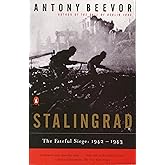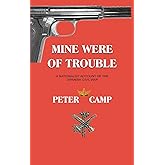
Download the free Kindle app and start reading Kindle books instantly on your smartphone, tablet, or computer - no Kindle device required.
Read instantly on your browser with Kindle for Web.
Using your mobile phone camera - scan the code below and download the Kindle app.

The Ghetto Fights: Warsaw 1943-45 Paperback – April 2, 2014
- Print length100 pages
- LanguageEnglish
- PublisherBookmarks Publications
- Publication dateApril 2, 2014
- Dimensions5.08 x 0.35 x 7.83 inches
- ISBN-101909026395
- ISBN-13978-1909026391
Book recommendations, author interviews, editors' picks, and more. Read it now.
Frequently purchased items with fast delivery
Editorial Reviews
Review
Product details
- Publisher : Bookmarks Publications; UK ed. edition (April 2, 2014)
- Language : English
- Paperback : 100 pages
- ISBN-10 : 1909026395
- ISBN-13 : 978-1909026391
- Item Weight : 5.1 ounces
- Dimensions : 5.08 x 0.35 x 7.83 inches
- Best Sellers Rank: #2,940,438 in Books (See Top 100 in Books)
- Customer Reviews:
About the author

Discover more of the author’s books, see similar authors, read book recommendations and more.
Customer reviews
- 5 star4 star3 star2 star1 star5 star87%13%0%0%0%87%
- 5 star4 star3 star2 star1 star4 star87%13%0%0%0%13%
- 5 star4 star3 star2 star1 star3 star87%13%0%0%0%0%
- 5 star4 star3 star2 star1 star2 star87%13%0%0%0%0%
- 5 star4 star3 star2 star1 star1 star87%13%0%0%0%0%
Customer Reviews, including Product Star Ratings help customers to learn more about the product and decide whether it is the right product for them.
To calculate the overall star rating and percentage breakdown by star, we don’t use a simple average. Instead, our system considers things like how recent a review is and if the reviewer bought the item on Amazon. It also analyzed reviews to verify trustworthiness.
Learn more how customers reviews work on AmazonTop reviews from the United States
There was a problem filtering reviews. Please reload the page.
- Reviewed in the United States on January 1, 2024We are so fortunate to have an eyewitness account from one of the leaders of the greatest-- and incredible--uprising in the Warsaw Ghetto. This amazing account along with the uprising in Treblinka and Sobibor camps eliminate any doubt that the Jewish people went to their death without a fight. And what a fight!
- Reviewed in the United States on March 16, 2015A short yet searing account of the experiences of the resistance of the Bund and ZOB, et al in the Warsaw Ghetto. Edelman gives the reader a detailed and heart wrenching account of what happened at the "Umschlagplatz" where hundreds of thousands of Jews were loaded onto cattle cars and then transported to the gas chambers to certain death. The book provides us with rare insights into the desperate conditions (mostly after Jan 1943) of the Ghetto but also documents heroic accounts (many barely adults) to resist an army that had to that point, defeated the armies of most of Europe.
- Reviewed in the United States on February 23, 2022“Now it is the turn of France. The victory of fascism in this country would signify a vast strengthening of reaction, and a monstrous growth of violent anti-Semitism in all the world, above all in the United States. The number of countries that expel the Jews grows without cease. The number of countries able to accept them decreases. At the same time the exacerbation of the struggle intensifies. It is possible to imagine without difficulty what awaits the Jews at the mere outbreak of the future world war. But even without war the next development of world reaction signifies with certainty the physical extermination of the Jews.”—Leon Trotsky “Appeal to American Jews menaced by fascism and anti-Semitism,” December 1938 in ‘On the Jewish Question.’
“The high percentage of Jews in the proletarian movement is only a reflection of the tragic situation of the Jewish people in our time. The intellectual faculties of the Jews, fruit of the historic past of Judaism, are thus an important support for the proletarian movement.
“In this latter fact lies a final—and not the least important—reason for modern anti-Semitism. The ruling classes persecute with special sadism the Jewish intellectuals and workers, who have supplied a host of fighters to the revolutionary movement. To isolate the Jews completely from the sources of culture and science has become a vital necessity for the decaying system that persecutes them. The ridiculous legend of “Jewish Marxism” is nothing but a caricature of the bonds that actually exist between socialism and the Jewish masses.” --Abram Leon in ‘The Jewish Question: A Marxist Interpretation.’
This gem is a short book by Marek Edelman, a militant of the General Jewish Labor Bund; one of the few surviving central leaders of the Warsaw Ghetto Uprising. He also took part in the citywide 1944 Warsaw Uprising with the other surviving members of the ZOB (Jewish Fighting Organization). (After the war he stayed in Poland, went to medical school, becoming a cardiologist. He was a member of Solidarity).
The Nazis had already deported most of the Jews from the ghetto to the death camps before it was possible to start resistance. For one thing they had no weapons, but more importantly most Jews refused to believe that the German soldiers were sending them to their deaths. The majority followed the Judenrat (Jewish Administration) which carried out the orders of the German occupiers through the Jewish Police, who helped the Nazis loading the cattle cars to Auschwitz and elsewhere. Israel Gutman, the author of ‘Resistance: The Warsaw Ghetto Uprising’ writes that “The behavior of the Judenrat in Warsaw during the Holocaust has always been a matter of considerable controversy.” To me, it’s not an academic question, but a class question. When resistance started, the Jewish Police were the first targets, and rightly so.
By 1942, the Jewish Bund had been able to prove to people what was actually happening, and to obtain from their comrades in the left-wing of the Polish Socialist Party and other sources their first weapons, mostly pistols. Later they got larger pistols, a few rifles, one machine gun, and they manufactured grenades and Molotov cocktails. In the fight they captured some German weapons. Armed Polish resistance hadn’t started yet. Together with other groups, mostly left-Zionists, they formed the ZOB—at a time when there were only 60,000 Jews (down from 300,000). Those Jews left in the Warsaw Ghetto were mostly working class. Full-scale rebellion didn’t start until April 1943. Despite their limited weaponry and lack of experience, the Jewish socialist partisans fought fiercely. The German troops in desperation tried to burn the entire ghetto, but resistance continued. Edelman writes,
“On May Day the Command decided to carry out a ‘holiday’ action. Several battle groups were sent out to ‘hunt down’ the greatest number of Germans possible. In the evening, a May Day roll-call was held. The partisans were briefly addressed by a few people and the ‘Internationale’ was sung. The entire world, we knew, was celebrating May Day on that day and everywhere forceful, meaningful words were being spoken. But never yet had the ‘Internationale’ been sung in conditions so different, so tragic, in a place where an entire nation had been and still was perishing. The words and the song echoed from the charred ruins and were, at that particular time, an indication that Socialist youth was still fighting in the Ghetto, and that even in the face of death they were not abandoning their ideals.”
Essential to understanding what fascism is and how it could have been prevented by the Communist Party if it had had a leadership like in the days of Lenin is Trotsky’s ‘The Struggle against Fascism in Germany.’ But I recommend for starters a book by Daniel Guerin, in part based on Trotsky’s writings, but a research work rather than a book of polemics, ‘Fascism and Big Business.’
Top reviews from other countries
 H. RocheReviewed in the United Kingdom on January 16, 2017
H. RocheReviewed in the United Kingdom on January 16, 20175.0 out of 5 stars Factual, essential
A cool telling of the facts. Edelman doesn't give much of himself away, and this is not a very personal memoir; but essential reading for anyone with a particular interest in the Warsaw Ghetto.
 eastern barbarianReviewed in the United Kingdom on June 10, 2017
eastern barbarianReviewed in the United Kingdom on June 10, 20175.0 out of 5 stars Small but really good book. Marek Edelman has a really interesting way ...
Small but really good book. Marek Edelman has a really interesting way of writing, the story is incredibly moving and an important part of history to learn.












